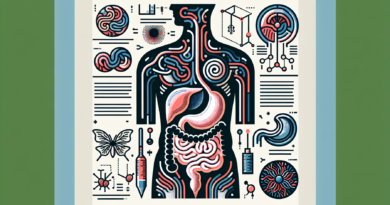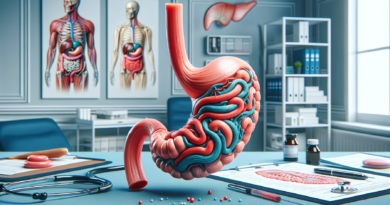Understanding the Causes and Solutions for Diarrhea
Dealing with diarrhea can be quite distressing, and it’s essential to comprehend what triggers it and how to deal with it effectively. The article “Understanding the Causes and Solutions for Diarrhea” provides a comprehensive look into this common health issue. By shedding light on the causes from food allergies, infections, to stress, and providing practical solutions varying from dietary changes, medication, or just simple hydration, this article aims at equipping you with the knowledge to navigate this tricky yet common problem adeptly. Understanding the mechanism behind this unpleasant health condition could be the key to coping with it better and possibly even preventing it. So let’s get you well-informed about it.

Definition of Diarrhea
Basic definition
Diarrhea isn’t a pleasant topic to discuss, but understanding it is important. Simply put, it’s a condition characterized by loose or watery stools. It’s a way for your body to cleanse itself when something has upset your gut flora or digestive system.
Signs and symptoms
The signs of diarrhea are pretty straightforward. It’s marked by liquid, loose, or watery stools, and sometimes a sense of urgency to use the bathroom. You might also experience bloating, cramps, or stomach pain. Nausea, fever, or blood in your stool can occur, but these symptoms, especially if they persist, are serious and require medical attention.
Duration and classifications
If it lasts less than two weeks, we call it acute diarrhea, which tends to relate to infections or food poisoning. When symptoms last longer, generally more than four weeks, it’s called chronic diarrhea. Chronic diarrhea may tie to ongoing conditions such as irritable bowel syndrome (IBS) or Crohn’s disease.
Common Causes of Diarrhea
Infections
Infections are the most common cause of acute diarrhea. These infections could be due to viruses, bacteria, or parasites invading your gut.
Food intolerances and allergies
Certain foods might not sit well with you, and that could give you a bout of diarrhea. It’s often the case with food intolerance and allergies such as lactose intolerance or celiac disease.
Reactions to medications
Yes, even your medication might be the culprit! Antibiotics, antacids, and certain cancer medications could cause diarrhea.
Diseases or disorders of the digestive system
Also, if you have a disease or disorder of the digestive system like Crohn’s disease or irritable bowel syndrome, you may experience diarrhea.
Infections and Diarrhea
Viral infections
Rotavirus, norovirus, and other types of viral gastroenteritis can lead to diarrhea. These infections are highly contagious and often spread in places with close contact, like schools and nursing homes.
Bacterial infections
Certain types of bacteria like E. coli, salmonella, or shigella can also cause diarrhea. These bacteria often get into your system through contaminated food or water.
Parasitic infections
Parasites like Giardia lamblia or cryptosporidium might be the cause of your diarrhea. You usually get these bugs from drinking or swimming in contaminated water.
Food-Related Causes
Lactose intolerance
If you’ve ever felt a rumble in your stomach after having a glass of milk, you might be lactose intolerant. This means your body doesn’t produce enough of a particular enzyme to digest a sugar called lactose found in dairy products.
Celiac disease and other food sensitivities
Celiac disease is an autoimmune disorder where gluten damages your small intestine, often causing diarrhea. Other food sensitivities could also cause diarrhea.
Consumption of non-digestible sugars or fats
Sugar alcohols such as xylitol, sorbitol, and others often found in sugar-free candies and gum can cause diarrhea, especially when consumed in large amounts. Eating too much fat can have a similar effect.
Alcohol and caffeine
Excessive intake of alcohol and caffeine can cause loose stools.
Medicinal Causes of Diarrhea
Antibiotics
Antibiotics can trigger diarrhea by disrupting the balance of good and bad bacteria in your gut.
Antacids
Antacids, especially ones containing magnesium, can often trigger diarrhea.
Chemotherapy medications
Chemotherapy drugs can have a host of side effects, including diarrhea.
Digestive Disorders and Diarrhea
Crohn’s disease
Crohn’s disease is an inflammatory bowel disease that can cause diarrhea among other symptoms.
Ulcerative colitis
Another inflammatory bowel disease, ulcerative colitis can also result in persistent diarrhea.
Irritable bowel syndrome (IBS)
If you have IBS, you might experience bouts of diarrhea, especially during stressful periods or after meals.
Gastroenteritis
Commonly known as the stomach flu, gastroenteritis can cause diarrhea along with nausea and vomiting.
Diagnosis of Diarrhea
Physical examination
Your doctor might perform a physical examination to identify any signs of dehydration or other related conditions.
Laboratory tests
Blood tests can give doctors a lot of information and might help in diagnosing the cause of your diarrhea.
Stool culture
In certain cases, your doctor might recommend a stool culture to identify bacteria, parasites, or other pathogens.
Colonoscopy or sigmoidoscopy
If chronic diarrhea is the issue, your doctor might recommend a colonoscopy or sigmoidoscopy to examine your colon and potentially identify the cause.
Home Remedies for Diarrhea
Hydration
When you have diarrhea, it’s easy to lose body fluids which can result in dehydration. That’s why drinking lots of water and rehydration solutions is crucial.
Eating certain foods
The BRAT diet — bananas, rice, applesauce, toast — can help firm up your stools.
Avoiding certain foods
Avoid fatty foods, dairy, and spicy meals until your symptoms improve.
Rest
And of course, taking it easy and resting is important to give your body a chance to recover.
Medical Treatments for Diarrhea
Antibiotics
If bacteria or parasites are causing your diarrhea, antibiotics may be necessary.
Loperamide (Imodium)
Imodium is an over-the-counter medication that can help reduce the frequency of your stools.
Bismuth subsalicylate (Pepto-Bismol, Kaopectate)
These can help soothe your gut and reduce the frequency of your stools.
Probiotics
Taking probiotics can help rebalance the good bacteria in your gut, which can help manage symptoms.
Prevention of Diarrhea
Hygiene practices
Washing your hands regularly and correctly is a great place to start! It’s one of the most effective ways to prevent the spread of infectious diarrhea.
Safe food practices
This involves adequately cooking your food and ensuring it’s stored properly.
Avoiding high-risk areas and behaviors
Avoiding high-risk areas, like places known to have poor sanitation, can decrease your risk. Also being mindful of what you eat or drink while traveling is key to avoiding traveler’s diarrhea.




